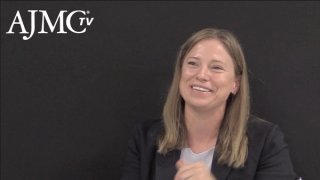
Acute Lymphoblastic Leukemia/Acute Myeloid Leukemia
Latest News

Latest Videos
More News
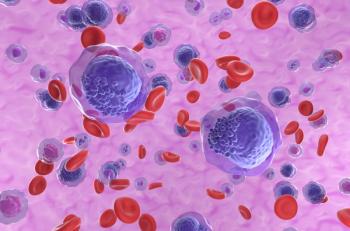
Recent years have brought a more targeted approach to treating acute myeloid leukemia (AML) based on accumulating knowledge about the genetic makeup of the heterogenous disease.

Maria Amaya, MD, PhD, University of Colorado School of Medicine, explores discrepancies between real-world data and clinical trial outcomes, as well as her experience ensuring the reliability of real-world analysis.
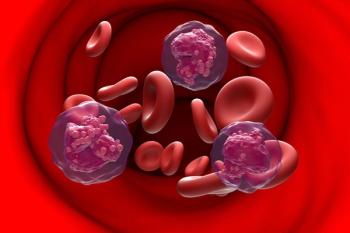
A case report suggests vigilance is required even when cancers like acute lymphoblastic leukemia appear to go into remission without explanation.

Adding blinatumomab to consolidation chemotherapy for B-cell precursor acute lymphoblastic leukemia (BCP-ALL) in patients without measurable residual disease (MRD) led to improvements in overall and relapse-free survival.

A new study suggests inhibiting ActivinA might improve the efficacy of chemotherapy in patients with B-cell acute lymphoblastic leukemia (B-ALL).

When the mercury outside ascends too high early in pregnancy, the risk of pediatric acute lymphoblastic leukemia may rise as well; results also show greater impacts on Latino populations.

This new study evaluates the efficacy of monotherapies and venetoclax combination therapies in different T-cell acute lymphoblastic leukemia (ALL) cell lines.
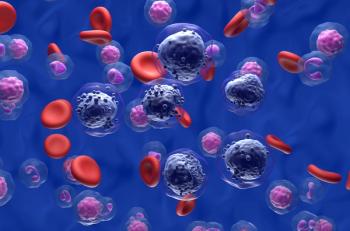
Liposomal daunorubicin and cytarabine (CPX-351) was effective in relapsed acute myeloid leukemia, but long-term follow-up is needed to determine the extent of the agent's cardiotoxicity.

The researchers noted that most genomic analyses have traditionally focused on commonly mutated genes, which can pinpoint mutations occurring most frequently but does not account for the extent to which these mutations impact cancer cell survival and proliferation.

Quality of life was also a top concern among patients when asked about their priorities if they experienced relapse or were refractory to therapy.
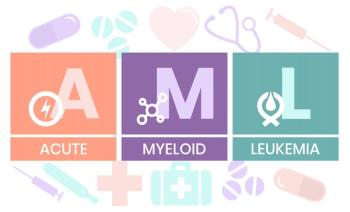
Researchers review the latest developments, challenges, and ongoing research in posttransplant maintenance for acute myeloid leukemia (AML).

People receiving hypomethylating agent (HMA) therapy spent 33 more days at home than people receiving anthracycline-based therapy in the first year after diagnosis.

Data from this new study suggest that tailoring induction therapy for acute myeloid leukemia (AML) based on cytarabine pharmacogenomic 10–single-nucleotide variant score could better treatment for these young patients, particularly those who are Black.

Phase 1 trial results indicate that combining inotuzumab ozogamicin with dose-adjusted EPOCH chemotherapy could offer a safe, well-tolerated, and effective treatment option for patients with relapsed or refractory CD22+ B-cell acute lymphoblastic leukemia or lymphoma (R/R B-ALL).

The treatment showed effectiveness in achieving local control of acute myeloid leukemia (AML) that developed in the eyes of a pediatric patient.

Interim results of the randomized, phase 3 PhALLCON trial indicate ponatinib’s benefit over imatinib in frontline treatment of Philadelphia chromosome–positive acute lymphoblastic leukemia (Ph+ ALL), but questions linger about ponatinib’s long-term safety.

Two unique case reports highlight the diagnostic challenges and critical importance of comprehensive immunophenotyping in cases of T-cell acute lymphoblastic leukemia/lymphoma that present without typical immaturity markers but with rare γδ T-cell receptor expression.

Physicians treated the patient without surgery, although they said the patient’s case is particularly challenging and treatment was ongoing at the time of the report’s writing.

Data highlight substantial improvements in outcomes following allogeneic hematopoietic cell transplantation (allo-HCT) among older patients with acute myeloid leukemia (AML).

A new study is among the largest real-world analyses to date to assess trends over time and predictive factors for older patients with acute myeloid leukemia (AML) who received allogeneic hematopoietic cell transplantation (allo-HCT).
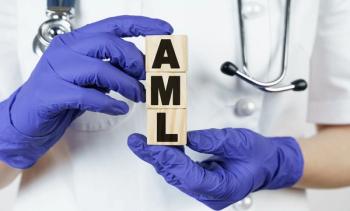
In this investigation, investigators sought insights into the safety and efficacy of chimeric antigen receptor (CAR) T-cell therapy in acute myeloid leukemia (AML), with a particular focus on how various patient subgroups fared for complete remission (CR).
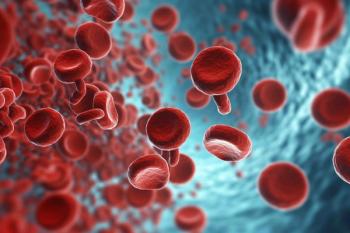
Revumenib, a first-in-class Menin inhibitor, was granted priority review from the FDA for the treatment of adult and pediatric relapsed or refractory KMT2A-rearranged acute leukemia.

This new report helps clarify the ways in which the disease—and its treatment—affects the lives of children.

A case report of a patient with acute leukemia who developed chronic disseminated candidiasis revealed difficulties in diagnosing and treating the illness.

The FDA has granted accelerated approval to ponatinib (Iclusig) plus chemotherapy for the first-line treatment of Philadelphia chromosome–positive acute lymphoblastic leukemia (Ph+ ALL).




